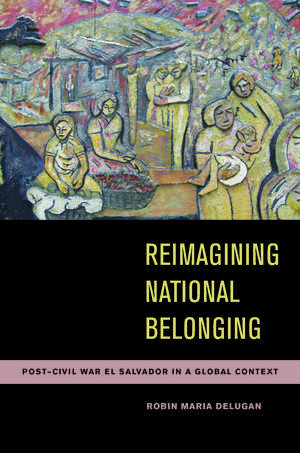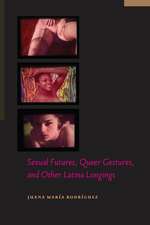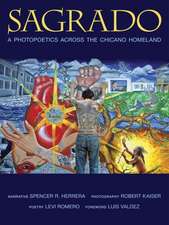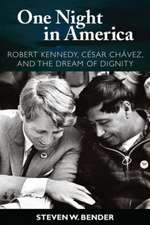Reimagining National Belonging: Post-Civil War El Salvador in a Global Context
Autor Robin Maria DeLuganen Limba Engleză Paperback – 25 feb 2014
Reimagining National Belonging is the first sustained critical examination of post–civil war El Salvador. It describes how one nation, after an extended and divisive conflict, took up the challenge of generating social unity and shared meanings around ideas of the nation. In tracing state-led efforts to promote the concepts of national culture, history, and identity, Robin DeLugan highlights the sites and practices—as well as the complexities—of nation-building in the twenty-first century.
Examining events that unfolded between 1992 and 2011, DeLugan both illustrates the idiosyncrasies of state and society in El Salvador and opens a larger portal into conditions of constructing a state in the present day around the globe—particularly the process of democratization in an age of neoliberalism. She demonstrates how academics, culture experts, popular media, and the United Nations and other international agencies have all helped shape ideas about national belonging in El Salvador. She also reveals the efforts that have been made to include populations that might have been overlooked, including indigenous people and faraway citizens not living inside the country’s borders. And she describes how history and memory projects have begun to recall the nation’s violent past with the goal of creating a more just and equitable nation.
This illuminating case study fills a gap in the scholarship about culture and society in contemporary El Salvador, while offering an “ethnography of the state” that situates El Salvador in a global context.
Examining events that unfolded between 1992 and 2011, DeLugan both illustrates the idiosyncrasies of state and society in El Salvador and opens a larger portal into conditions of constructing a state in the present day around the globe—particularly the process of democratization in an age of neoliberalism. She demonstrates how academics, culture experts, popular media, and the United Nations and other international agencies have all helped shape ideas about national belonging in El Salvador. She also reveals the efforts that have been made to include populations that might have been overlooked, including indigenous people and faraway citizens not living inside the country’s borders. And she describes how history and memory projects have begun to recall the nation’s violent past with the goal of creating a more just and equitable nation.
This illuminating case study fills a gap in the scholarship about culture and society in contemporary El Salvador, while offering an “ethnography of the state” that situates El Salvador in a global context.
Preț: 208.49 lei
Nou
Puncte Express: 313
Preț estimativ în valută:
39.90€ • 41.40$ • 33.35£
39.90€ • 41.40$ • 33.35£
Carte tipărită la comandă
Livrare economică 17-31 martie
Preluare comenzi: 021 569.72.76
Specificații
ISBN-13: 9780816531011
ISBN-10: 0816531013
Pagini: 168
Dimensiuni: 152 x 229 x 18 mm
Greutate: 0.23 kg
Ediția:First Edition
Editura: University of Arizona Press
Colecția University of Arizona Press
ISBN-10: 0816531013
Pagini: 168
Dimensiuni: 152 x 229 x 18 mm
Greutate: 0.23 kg
Ediția:First Edition
Editura: University of Arizona Press
Colecția University of Arizona Press
Notă biografică
Robin Maria DeLugan is an assistant professor of anthropology in the School of Social Sciences, Humanities, and Arts at the University of California, Merced.
Cuprins
Acknowledgments
Introduction: Nation Out of War
1. Concentrating on Culture: Peace, Schooling, and Values
2. Drawing on the Past: History, Archaeology, Inclusions, and Exclusions
3. Envisioning Indigenous Participation: State Ambivalence, Local Activism, and International Influences
4. Remapping the Nation: Faraway Citizens, Transnational State Practices, and the Impact of Migration
5. Remembering and Belonging: Museums, Monuments, and National Memory Including the Violence of Civil War
Conclusion
Notes
Works Cited
Index
Introduction: Nation Out of War
1. Concentrating on Culture: Peace, Schooling, and Values
2. Drawing on the Past: History, Archaeology, Inclusions, and Exclusions
3. Envisioning Indigenous Participation: State Ambivalence, Local Activism, and International Influences
4. Remapping the Nation: Faraway Citizens, Transnational State Practices, and the Impact of Migration
5. Remembering and Belonging: Museums, Monuments, and National Memory Including the Violence of Civil War
Conclusion
Notes
Works Cited
Index
Recenzii
“An excellent addition to the literature on El Salvador, postconflict societies, indigenous issues, and transnationalism. It is essential reading for any scholar doing work on El Salvador and provides a useful framework for analyzing nation-building efforts in postconflict settings.”—American Ethnologist
“The study offers a compelling and comprehensive analysis of the state’s construction of memory, with a specific focus on contestation over the (re)presentation of El Salvador’s indigenous past and present, as well as the legacy of the civil war. The evocation of nationalism as a transnational project is especially persuasive.”—Jonathan Fox, author of Accountability Politics: Power and Voice in Rural Mexico
“In a recent explosion of scholarship on El Salvador, DeLugan offers an original analysis, presenting the first sustained focus on the theme of contemporary nation building after civil war.”—Ellen Moodie, author of El Salvador in the Aftermath of Peace: Crime, Uncertainty and the Transition to Democracy
“The study offers a compelling and comprehensive analysis of the state’s construction of memory, with a specific focus on contestation over the (re)presentation of El Salvador’s indigenous past and present, as well as the legacy of the civil war. The evocation of nationalism as a transnational project is especially persuasive.”—Jonathan Fox, author of Accountability Politics: Power and Voice in Rural Mexico
“In a recent explosion of scholarship on El Salvador, DeLugan offers an original analysis, presenting the first sustained focus on the theme of contemporary nation building after civil war.”—Ellen Moodie, author of El Salvador in the Aftermath of Peace: Crime, Uncertainty and the Transition to Democracy
Descriere
Reimagining National Belonging offers the first sustained critical examination of post-civil war El Salvador, describing how one nation took up the challenge of generating social unity and shared meanings around ideas of the nation. An “ethnography of the state,” it highlights the practices and the complexities of nation-building in the 21st century.













